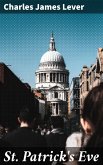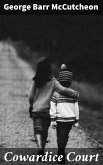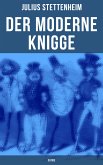In "St. Patrick's Eve," Charles James Lever masterfully weaves a tale that captures the vibrant spirit of Irish culture against the backdrop of the early 19th century. The novel is marked by Lever's signature blend of humor and keen social observation, employing a lively narrative style that immerses readers in the festive atmosphere of the titular night. Lever explores themes of identity, love, and community, expertly portraying the complexities of Irish society during a time of burgeoning national consciousness. Rich descriptions and realistic dialogue serve to enliven both characters and setting, offering a tapestry that showcases the author's affinity for Dublin's bustling life. Charles James Lever, a prominent figure in Victorian literature, was profoundly influenced by his Irish heritage, having been born in Dublin. His personal experiences and insights into the social fabric of Ireland allow him to authentically depict the characters and scenarios that populate his works. Lever's intimate understanding of the local culture, coupled with his extensive travels, enriches "St. Patrick's Eve," making it a poignant exploration of national identity and human connection. Readers seeking a captivating narrative that interlaces humor with social critique will find "St. Patrick's Eve" a rewarding experience. Lever's ability to craft engaging characters and compelling dialogue ensures that this novel resonates on multiple levels. It invites readers not only to revel in the charm of St. Patrick's celebration but also to reflect on the broader themes of belonging and aspiration within a uniquely Irish context.
Dieser Download kann aus rechtlichen Gründen nur mit Rechnungsadresse in A, B, BG, CY, CZ, D, DK, EW, E, FIN, F, GR, H, IRL, I, LT, L, LR, M, NL, PL, P, R, S, SLO, SK ausgeliefert werden.









